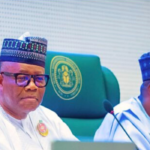Socio-Economic Rights and Accountability Project (SERAP) has filed a lawsuit asking the Federal High Court in Lagos to compel the Federal Government to disclose details of proposed payments of N729bn to 24.3 million poor Nigerians.
It also wants the mechanisms and logistics for the payments, list of beneficiaries, and how they have been selected, and whether the payments will be made in cash or through Bank Verification Numbers or other means.
- Why Nigerians still sleep with hunger despite massive food production – Agric minister
Mass exodus of doctors must stop
SERAP is also seeking “an order directing and compelling the Federal Government to explain the rationale for paying N5,000 to 24.3 million poor Nigerians for six months, which translates to five percent of the country’s budget of N13.6 trillion for 2021.”
The suit followed SERAP’s Freedom of Information (FoI) request to Sadia Umar-Farouk, Minister of Humanitarian Affairs, Disasters Management and Social Development, stating that: “Disclosing the details of beneficiaries and selection criteria, as well as the payment plan would promote transparency and accountability, and remove the risks of mismanagement and diversion of public funds.”
In suit number FHC/L/CS/853/2021 filed at the Federal High Court, Lagos, SERAP is also seeking: “an order directing and compelling the Federal Government to clarify whether the proposed payment to poor Nigerians is part of the N5.6 trillion budget deficit.”
In the suit filed against Sadiya Umar-Farouk, SERAP is arguing that “Providing support and assistance to poor Nigerians is a human rights obligation but the programme to spend five percent of the 2021 budget, which is mostly based on deficit and borrowing, requires anti-corruption safeguards to ensure the payments go directly to the intended beneficiaries, and that public funds are not mismanaged or diverted.”
According to SERAP: “The Nigerian Constitution of 1999 [as amended], UN Convention against Corruption, and African Union Convention on Preventing and Combating Corruption to which Nigeria is a state party require the government to set the highest standards of transparency, accountability and probity in programmes that it oversees.”

 Join Daily Trust WhatsApp Community For Quick Access To News and Happenings Around You.
Join Daily Trust WhatsApp Community For Quick Access To News and Happenings Around You.


